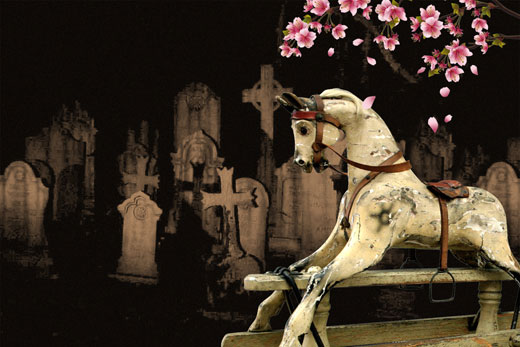For its 2012-2013 season "Provocative Tales: Eccentrics, Beasts, & Misfits," Theater Emory has been on a mission to explore. And the final production of the season, Anton Chekhov's "The Cherry Orchard," is no exception.
"This is not a traditional production," says Tim McDonough, director of the play, which runs April 4-14 in the Mary Gray Munroe Theater. "There's nothing wrong with a traditional production, but that is not what we are up to in this show, this season, or even this theater — which is interested in innovative approaches and which has the freedom, indeed the mission, to explore."
Russian dramatist Chekhov knew he was dying when he wrote his masterpiece about transition that itself transitioned theater into a new age, a fact that can be felt in the work's major themes.
"Resistance to time is in some ways the protagonist of the play," explains McDonough, who in addition to directing the production serves as chair of Theater Studies at Emory. "People are struggling to keep things the same, to hold on to what they have—whereas the events of the play force them to let go and to suffer their losses."
While this may sound somber, Chekhov insisted that "The Cherry Orchard" is a comedy.
"The play is full of social comedy, farce and a kind of absurdity that anticipated and contributed to existential comedies much later in the century," explains McDonough. "A good bit of the comedy in the play is due to the absurdity of characters who attempt to stand still in the inescapable flow of time."
Set designer Sara Culpepper has realized an imaginative re-design of the set created for "Grim, Grimmer, Grimmest," Theater Emory's fall 2012 production, designed by Theater Studies' Leslie Taylor. What was a dark and dangerous forest has been transformed into a white, dreamlike world.
Professional actors in the cast include Janice Akers, John Bugge, Mark Cabus, Jim Donadio, Donald McManus, and Clint Thornton with lighting and sound design by Brent Glenn, costumes by Sydney Roberts, and choreography by Emory alum Nicholas Surbey.
"This will be a haunted production of a haunted play," says McDonough. "Its ghosts include the dead, offstage characters who never appear but influence events, and the characters themselves, who live not in the present but in the past or the future. And this production will include the ghost of the playwright himself."
Chekhov, played by Theater Studies professor Donald McManus, is present onstage as the central experiment of Theater Emory's production: he initiates the play and orchestrates the action until characters take on their own life.

